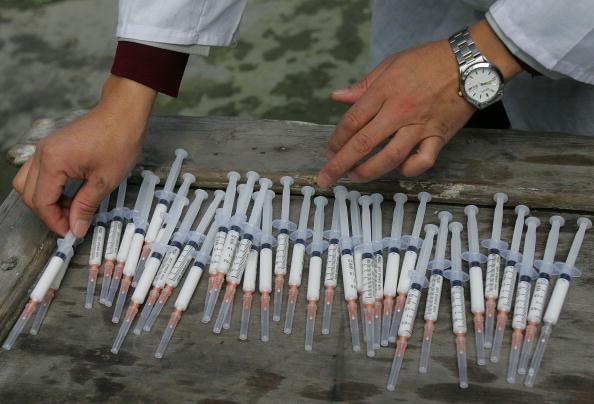Chinese authorities have announced that drug wholesalers are now banned from selling vaccines in the wake of a scandal involving millions of illicit trades of vaccines through a blackmarket drug ring since 2011.
On April 23, Premier Li Keqiang have finally signed the new decree, stipulating that non-compulsory vaccines (B-class) will now be distributed under the security of the national compulsory immunization program, Xinhua reported.
In a bid to simplifies the distribution channel and improves transparency, the local authorities are requiring health officials to get the vaccines directly from manufacturers before dispatching it to the hospital and stressed that they must keep clear records of their purchases. It also banned the wholesalers from selling, transporting and distributing vaccines across the nation.
Apart from that, the government will also set up an electronic vaccine tracking system that will monitor the circulation and use of antibodies, as well as its entire life cycle from manufacturing, storage and transportation.
The government also urges the agencies in charge of handling the vaccines to report directly to the authorities once they see vaccines without a clear source or have unrecognizable packaging and stressed that it will be later destroyed under the joint watch of health and drug authorities.
"Vaccine safety is critical to children's life and health, it is a red line that cannot be messed around with," China Central Television quoted the State Council as saying, as cited by South China Morning Post.
The decision also heightened accountability for vaccine producers, medical units, and supervision authorities. According to reports, those violators will face high fines and will be required to resign from their jobs.
The move comes after a report claiming that a 47-year-old mother along with her daughter was arrested after the police suspected them of selling 570 million yuan (approximately $88 million) worth of improperly stored or expired vaccines. The scandal ignited public anger, as it has been learned that around 300 dealers in 24 provinces are involved.
As of recently, China's Food and Drug Administration is looking into revoking the licenses of around 45 firms, including Shaanxi Bangxin Shengwu and Hebei Shanggu Shengwu Innovation, on the grounds that they were allegedly selling vaccines to non-qualified units and fabricating vaccine sales records.
Check out the video below for more information:



























